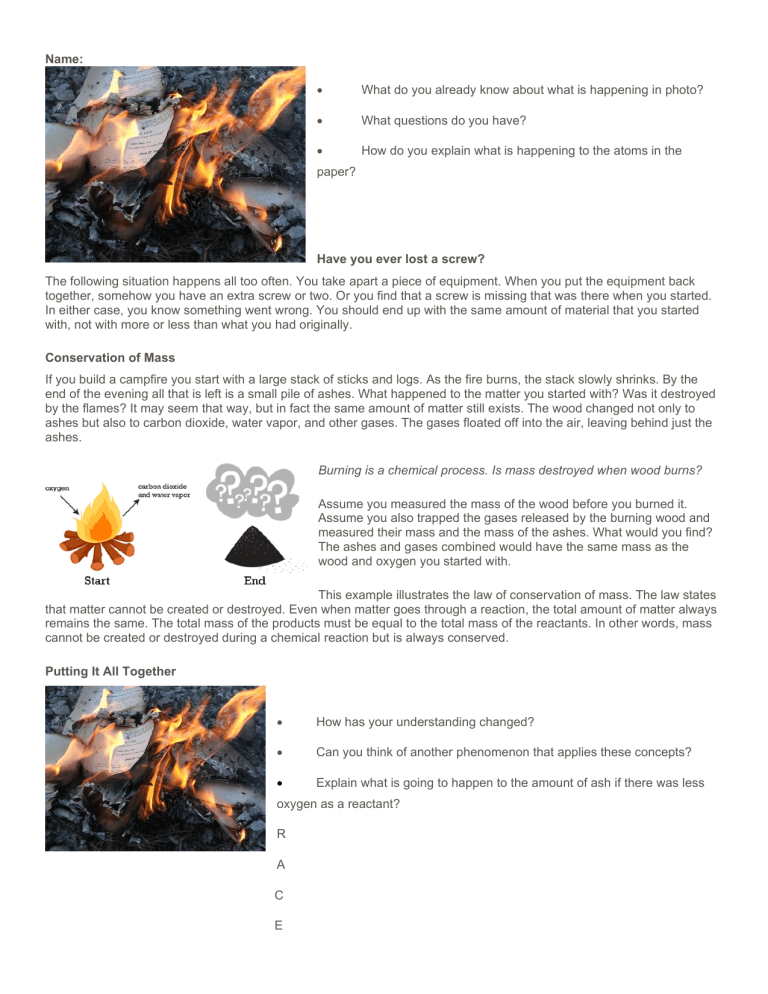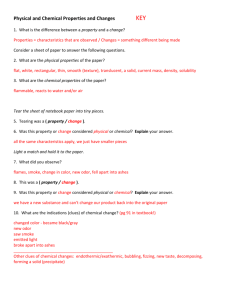
Name: • What do you already know about what is happening in photo? • What questions do you have? • How do you explain what is happening to the atoms in the paper? Have you ever lost a screw? The following situation happens all too often. You take apart a piece of equipment. When you put the equipment back together, somehow you have an extra screw or two. Or you find that a screw is missing that was there when you started. In either case, you know something went wrong. You should end up with the same amount of material that you started with, not with more or less than what you had originally. Conservation of Mass If you build a campfire you start with a large stack of sticks and logs. As the fire burns, the stack slowly shrinks. By the end of the evening all that is left is a small pile of ashes. What happened to the matter you started with? Was it destroyed by the flames? It may seem that way, but in fact the same amount of matter still exists. The wood changed not only to ashes but also to carbon dioxide, water vapor, and other gases. The gases floated off into the air, leaving behind just the ashes. Burning is a chemical process. Is mass destroyed when wood burns? Assume you measured the mass of the wood before you burned it. Assume you also trapped the gases released by the burning wood and measured their mass and the mass of the ashes. What would you find? The ashes and gases combined would have the same mass as the wood and oxygen you started with. This example illustrates the law of conservation of mass. The law states that matter cannot be created or destroyed. Even when matter goes through a reaction, the total amount of matter always remains the same. The total mass of the products must be equal to the total mass of the reactants. In other words, mass cannot be created or destroyed during a chemical reaction but is always conserved. Putting It All Together • How has your understanding changed? • Can you think of another phenomenon that applies these concepts? • Explain what is going to happen to the amount of ash if there was less oxygen as a reactant? R A C E

